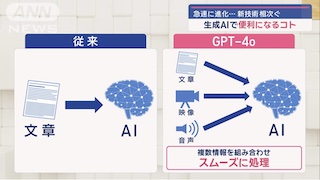Apr 08 (News On Japan) - Bitcoin's role in shaping innovative banking solutions is a topic of increasing interest and debate.
As the world transitions towards a more digital and decentralized financial system, Bitcoin stands at the forefront, challenging traditional banking models and offering new possibilities for financial inclusion and security. Understanding Bitcoin's impact on banking is essential for grasping the future direction of finance. For expert insights into Bitcoin's transformative impact on banking and financial systems, explore bitcoin-360-ai.com
BTC's Impact on Banking and Finance
Bitcoin's impact on banking and finance has been profound, challenging traditional systems in ways previously unimaginable. One of the key aspects of Bitcoin is its decentralized nature, which means that it operates independently of central banks and governments. This decentralization has several implications for the banking sector.
Firstly, Bitcoin has the potential to reduce the reliance on traditional banking systems for financial transactions. With Bitcoin, individuals and businesses can transact directly with each other, bypassing the need for intermediaries such as banks. This has the potential to lower transaction costs and increase the speed of transactions, particularly for international transfers.
Secondly, Bitcoin has the potential to increase financial inclusion by providing access to financial services for people who are currently underserved by traditional banking systems. For example, in many developing countries, large segments of the population do not have access to banking services. Bitcoin can provide these individuals with a secure and affordable way to store and transfer money.
Additionally, Bitcoin has the potential to increase financial privacy. Traditional banking systems require individuals to disclose personal information when opening an account or making a transaction. Bitcoin, on the other hand, allows users to make transactions anonymously, providing a level of privacy that is not possible with traditional banking systems.
Overall, Bitcoin's impact on banking and finance is still in its early stages, but it has the potential to revolutionize the way we think about money and banking. As more people and businesses adopt Bitcoin, its impact on the banking sector is likely to grow, leading to a more decentralized and inclusive financial system.
Benefits of BTC in Banking
Bitcoin offers several benefits to the banking sector, including lower transaction fees, increased financial inclusion, and enhanced security. One of the key benefits of Bitcoin is its lower transaction fees compared to traditional banking methods.
Because Bitcoin operates on a decentralized network, there are no intermediaries involved in transactions, which can significantly reduce transaction costs.
Another benefit of Bitcoin is increased financial inclusion. In many parts of the world, large segments of the population do not have access to banking services. Bitcoin provides these individuals with a secure and affordable way to store and transfer money, opening up new opportunities for financial participation.
Additionally, Bitcoin offers enhanced security compared to traditional banking systems. Bitcoin transactions are secured using cryptographic techniques, making them virtually immune to fraud and hacking. This level of security is particularly valuable in an era of increasing cyber threats.
Overall, Bitcoin's benefits in banking are significant and have the potential to reshape the way we think about money and banking. As more banks and financial institutions adopt Bitcoin, its benefits are likely to become even more pronounced, leading to a more efficient, inclusive, and secure financial system.
Challenges and Risks of BTC Adoption
While Bitcoin offers many benefits, its adoption in the banking sector also poses several challenges and risks. One of the main challenges is regulatory uncertainty. Bitcoin operates in a regulatory gray area in many countries, with regulators struggling to define its legal status and how it should be regulated.
Another challenge is the volatility of Bitcoin's price. Bitcoin is known for its price volatility, with its value fluctuating wildly over short periods. This volatility can make it difficult for banks to use Bitcoin as a stable store of value or medium of exchange, as its value can change significantly between the time a transaction is initiated and when it is completed.
Additionally, Bitcoin's association with illicit activities such as money laundering and terrorism financing poses a reputational risk for banks. Banks that adopt Bitcoin may be perceived as facilitating these activities, which can damage their reputation and lead to regulatory scrutiny.
Despite these challenges and risks, many banks and financial institutions are exploring ways to integrate Bitcoin into their operations. By addressing these challenges and risks, banks can unlock the full potential of Bitcoin and create a more efficient and inclusive financial system.
Conclusion
In conclusion, Bitcoin's impact on banking and finance is undeniable. Its decentralized nature, lower transaction costs, and potential for financial inclusion are reshaping the way we think about money and banking. While challenges and risks exist, the potential benefits of Bitcoin in banking are too significant to ignore. As Bitcoin continues to evolve, its role in shaping innovative banking solutions is set to grow, ushering in a new era of financial possibilities.














